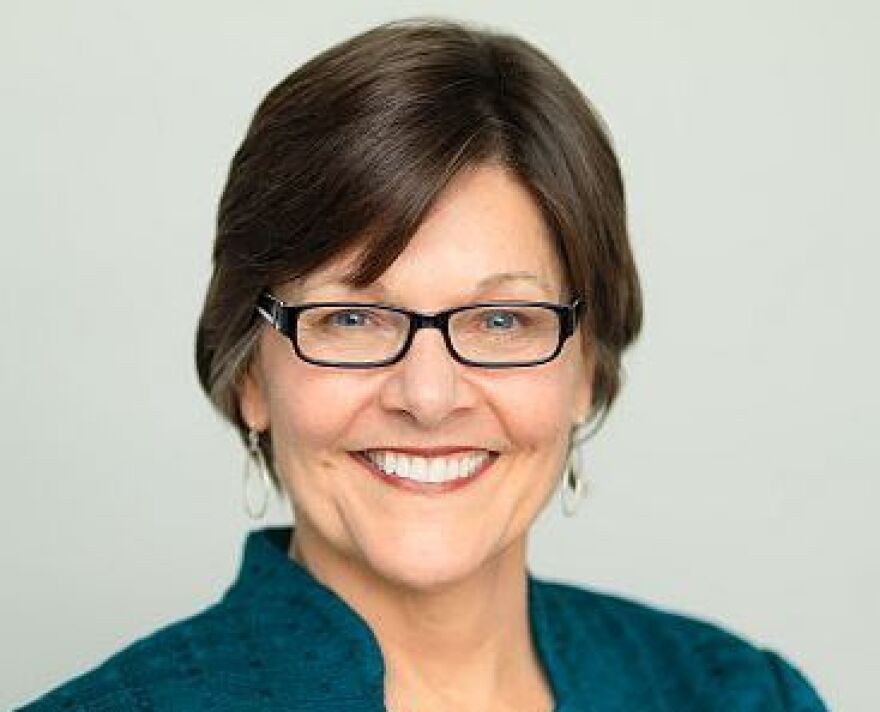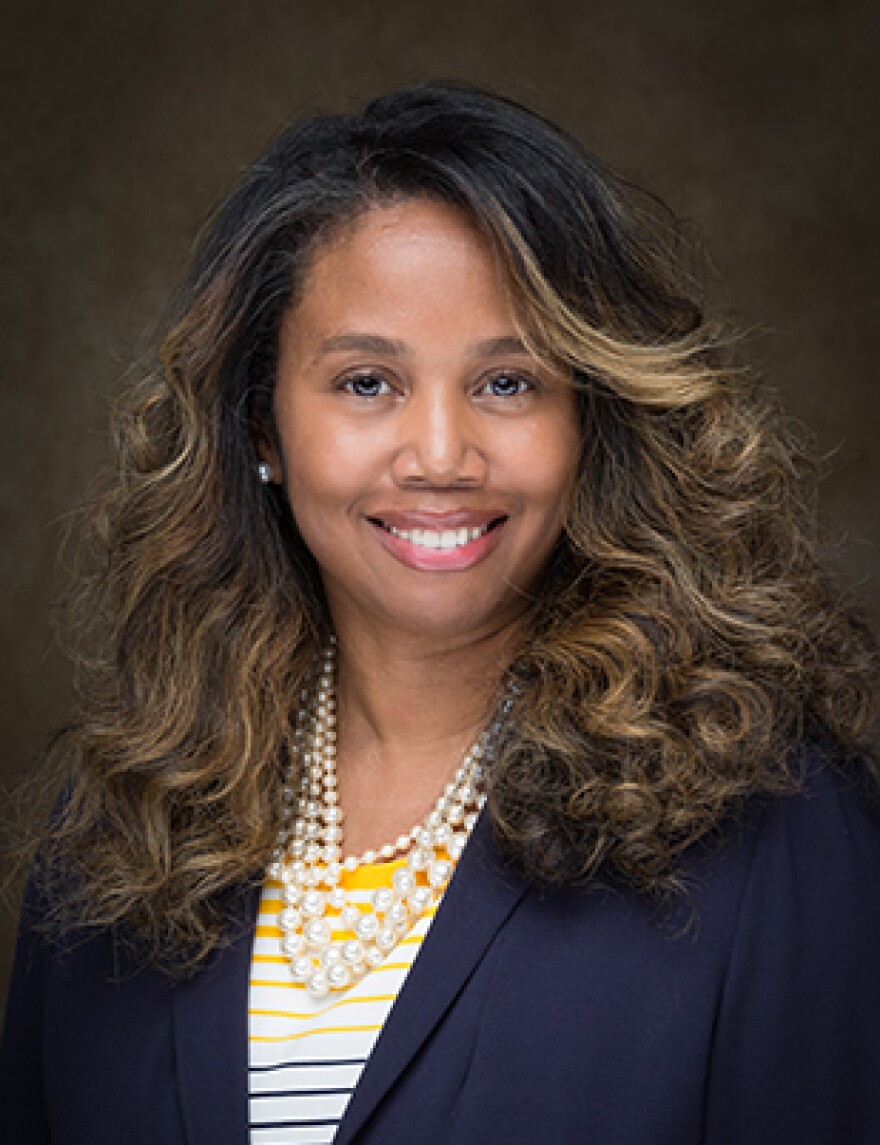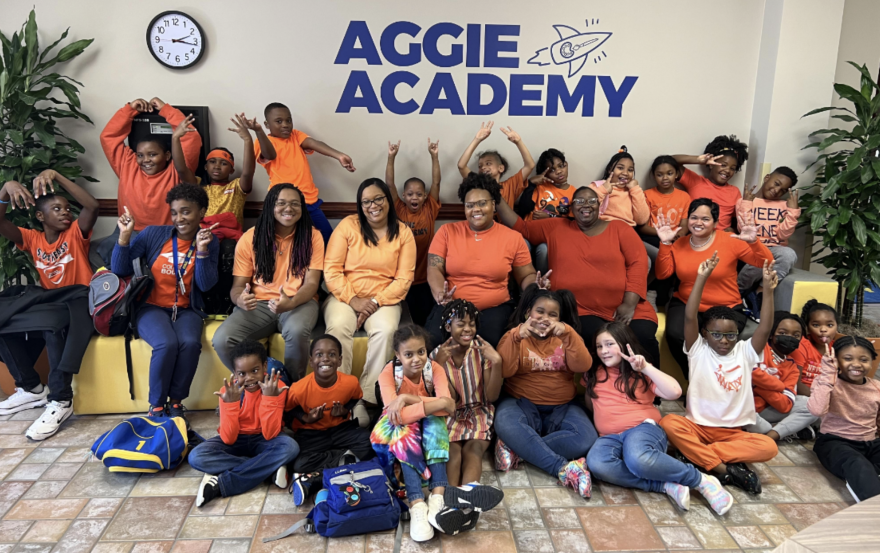For years, North Carolina’s quest to improve reading skills focused on the kids who were falling behind.
In 2021, attention shifted to the teachers who couldn’t increase reading proficiency, with the General Assembly providing more than $90 million to retrain elementary school teachers.
But what about the schools that teach the teachers? The UNC system’s Board of Governors recently hired a consultant to check up on its 15 colleges of education. The goal was to make sure graduates would show up for their first jobs ready to help children learn to read.
Last fall, the consultant reported that only one school — UNC Charlotte’s Cato College of Education — had a strong early literacy program. There, faculty have been using the strategies now labeled “the science of reading” for a decade. Other schools across the state are now scrambling to catch up.
That’s not always easy.
“It's taken some time to kind of get the buy-in. … We have had some attrition with faculty,” said Gretchen Robinson, an education administrator at UNC Pembroke, which was rated “needs improvement” in early literacy. She says the college lost two faculty members because of the changes.

At UNC Charlotte, the work began when Ellen McIntyre was hired as Cato College’s dean in 2013. Her specialty was literacy, and she says she had long been aware of the reading research that has recently gained wider public attention.
“But a lot of people weren’t doing it,” McIntyre said, “and a lot of the work was driven by teacher educators who had been trained under a problematic model for teaching kids to read.”
The problematic model she’s referring to is called whole language, which McIntyre says she used early in her career. But based on research and experience, she concluded it was lacking.
“The model didn’t include systematic, explicit teaching of phonics or any of the other foundational skills — not the teaching of fluency, for example, or even the explicit teaching of comprehension,” she said.
Pandemic prompts public debate
Debate that had been going on in academic circles for years exploded into public awareness recently. North Carolina was not the only state struggling to break past shockingly low reading levels. On the last national reading exam given before the pandemic, only 36% of North Carolina’s fourth-graders were rated proficient, and that was a bit above the national average.
And that only got worse after COVID-19 brought school closures and remote classes. Black, Latino and low-income students who were trailing before the pandemic fell further behind. And some parents watching their children’s remote classes began to question how their kids were being taught to read.
In 2022, an American Public Media podcast called “Sold a Story” quoted some of those parents and highlighted shortcomings in whole language and balanced literacy strategies, creating a broader public awareness of what’s been dubbed the science of reading.
That phrase doesn’t refer to any single program, product or research report. It encompasses a wide range of studies done over decades, with academics and vendors creating strategies to put that knowledge into practice. The gist of it is that most children need explicit instruction in the sounds that letters can make, how they combine to form words, what those words mean, and how to read fluently and understand the material.
Many in the academic world were already aware of tensions between what that research showed and what happened in many classrooms.
Six years ago the Board of Governors urged its colleges of education to create a framework for literacy that incorporated phonics, vocabulary, fluency and comprehension in lessons for children.
At UNC Charlotte, McIntyre says she had been quietly reassigning early literacy professors who weren’t willing to use such strategies and hiring new ones who were.
“I had learned pretty early on how to interview people to see if they really understand the science of reading, because professors are coming out of the universities still today not knowing it,” she said.
Grading the schools
Grim post-pandemic reading scores turned up the pressure on teachers and colleges of education. In 2021, the General Assembly mandated that all elementary teachers be re-trained in science of reading strategies, using a program called Language Essentials for Teachers of Reading and Spelling, better known as LETRS. That was designed to make sure they understood research-based strategies for sizing up children’s skills and teaching them the building blocks of literacy.
Lawmakers also ordered the Board of Governors to hire an outside evaluator to report on how well the state’s 15 schools of education were incorporating those strategies. The consultant, Teacher Prep Inspection-US, concluded that only UNC Charlotte had a strong program. Five others — UNC Chapel Hill, NC State, NC A&T, Fayetteville State and UNC Wilmington — were rated “good,” with the rest labeled “needs improvement” or “inadequate.”
The board demanded improvement — and fast. In January, it ordered all of its education schools, except UNC Charlotte, to report back by July 1 on how they would improve their programs. If a school couldn’t prove that shortcomings were being addressed, the board and the system president “shall decide what remedies are appropriate to ensure compliance.”

UNC-Pembroke added two classes to its curriculum, increasing the required reading courses for students from three to five. Faculty and students there went through LETRS, the same program that classroom teachers are doing.
UNC-Pembroke is also building a model classroom with reference materials where teachers in training can practice reading concepts. Interim Dean Zoe Locklear said eventually the space could be used for hands-on instruction with students from local charter and elementary schools.
The school is working on hiring an endowed professor of literacy, with a focus on leadership, research and teaching in the science of reading.
For A&T, which got a “good” rating, the required changes were not as dramatic. Educator preparation Chair Gerrelyn Patterson says faculty had already begun revising the literacy curriculum to incorporate LETRS. After the Board of Governors mandate, they launched twice-weekly strategy sessions to get the work done faster.
“The students would say it was time intensive, they already felt like the literacy classes are very rigorous. And then when you add on LETRS to the preparation of the literacy scholars, it made it more rigorous,” Patterson said.
Work with children is key
Administrators at A&T and UNC Charlotte say it’s important to teach the right strategies and spend plenty of time on literacy. But another ingredient is needed, they say: A chance for aspiring teachers to put those strategies into action with real children.
“Many of our students who go through our program get 50 hours of interaction with students when it comes to literacy even before they do their student teaching,” Malcolm Butler said. He became dean of UNC Charlotte’s education school after McIntyre moved to a similar position at the University of Tennessee in 2020.

Both A&T and Charlotte run elementary schools where their students can get extra classroom experience, under the supervision of professors and graduate students. In 2022, A&T opened Aggie Academy in Greensboro, serving grades 3-5.
College students there use science of reading strategies in the classroom. This spring they also hosted a reading festival for families, with booths explaining concepts like phonological awareness, fluency or text comprehension. They also gave parents information on strategies they can use to practice the concepts at home.
“There's not been a time that I've not been face to face with students applying what I learned in the classroom,” said T’Asia Williamson, a senior in A&T’s education school. That work, she says, reminds her that she is shaping the future of a new generation.

“So the coursework, (students) may say is a lot. But I say it's the appropriate amount necessary to ensure that we are not just teachers, but we are educators,” Williamson said.
Zoe Klein, who expects to graduate from UNC Charlotte’s education school in December, voices similar thoughts. She does a lot of small-group work with students at Niner University Elementary, which opened in 2021. On a recent fall morning, that involved leading three fourth-graders through exercises in sounding out syllables and learning what parts of words mean.
“We are seeing development in these students at a rate that was not possible before, especially in whole-group lessons,” Klein said. And while the small-group sessions may seem to be focused on remedial skills, she says she has learned that all students benefit.
“Just because they are scoring at the area that they need to be in fourth grade, that doesn’t mean their development is done. We can get them above and beyond that going into fifth grade and going into middle school,” Klein said.
“They need this intervention. They deserve this intervention,” she said. “Every single student has a right to be able to read. In my opinion, that’s just a human right.”
Continuing to grow
Getting the top rating from the Board of Governors consultant doesn’t mean UNC Charlotte can ease up. Butler, the current dean, says his faculty and students need to keep monitoring new research, testing strategies and revising their approach.

“I think in our college we’re agile enough and we’re humble enough to say, ‘Hey, if it’s working, great, and if it’s not, it’s time for us to make some adjustments,’ ” he said.
Butler says Charlotte’s program has gotten support from a number of community partners, including Charlotte-Mecklenburg Schools, a privately-funded reading initiative called Read Charlotte, the Augustine Literacy Project tutoring program and philanthropies such as the Belk Foundation and the Mebane Foundation. The university recently launched an early literacy center, using a grant of up to $23 million from the Mebane Foundation. The center will provide professional development and conduct research related to early literacy.
As for the other colleges of education, University System President Peter Hans told the board in June that all colleges have begun changing how they teach early literacy. He noted that a National Council on Teacher Quality assessment of teacher preparation programs released in June gave high marks to several North Carolina programs that had rated low on the consultant’s report. For instance, he wrote, East Carolina University’s program received an A+ on the national review, after being the lowest-rated program in the state report.
“Our shared attention to this issue is driving needed change on our campuses, and these signs of progress leave me cautiously optimistic,” Hans wrote in a memo to the board. “Our success will make the difference between a thriving future for our young people or a lifetime of reading difficulties. We all feel those stakes keenly as we carry out this important work.”
In September, the consultant issued a follow-up report that found “encouraging progress” in all programs. There’s plenty of work ahead, it concluded, but all are moving in the right direction.





